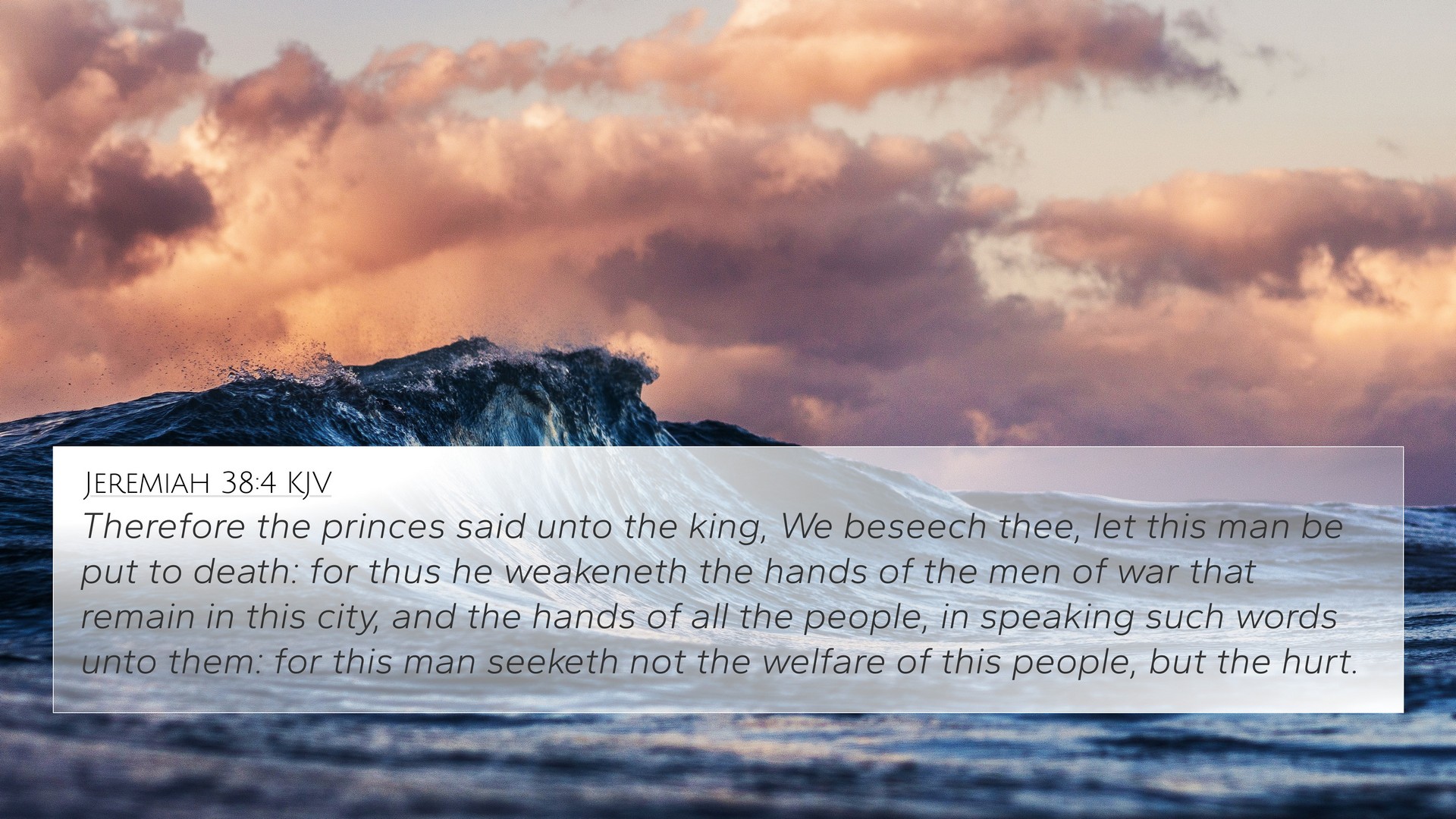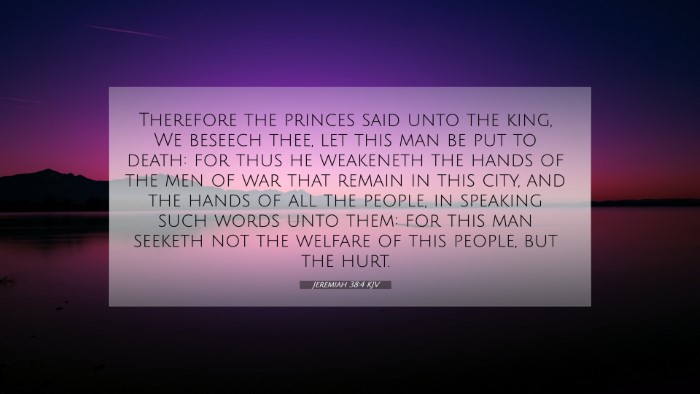This section features a detailed cross-reference designed to enrich your understanding of the Scriptures.
Below, you will find carefully selected verses that echo the themes and teachings related to Jeremiah 38:4 KJV. Click on any image to explore detailed analyses of related Bible verses and uncover deeper theological insights.
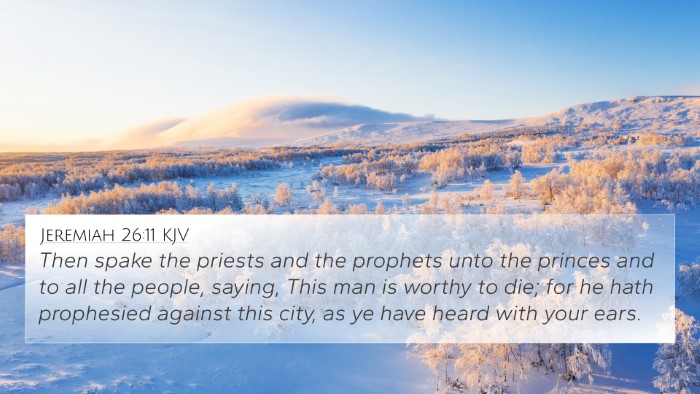 Jeremiah 26:11 (KJV) »
Jeremiah 26:11 (KJV) »
Then spake the priests and the prophets unto the princes and to all the people, saying, This man is worthy to die; for he hath prophesied against this city, as ye have heard with your ears.
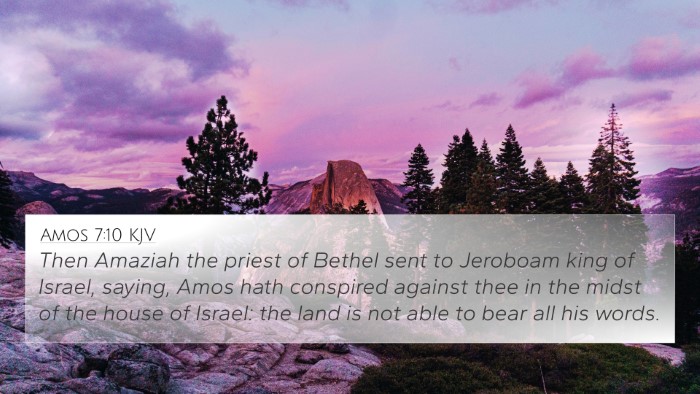 Amos 7:10 (KJV) »
Amos 7:10 (KJV) »
Then Amaziah the priest of Bethel sent to Jeroboam king of Israel, saying, Amos hath conspired against thee in the midst of the house of Israel: the land is not able to bear all his words.
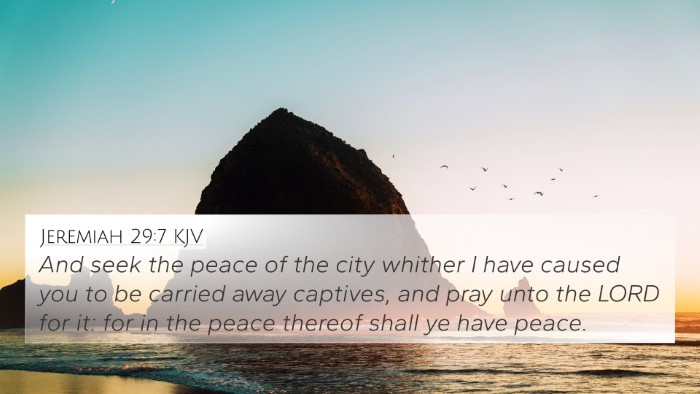 Jeremiah 29:7 (KJV) »
Jeremiah 29:7 (KJV) »
And seek the peace of the city whither I have caused you to be carried away captives, and pray unto the LORD for it: for in the peace thereof shall ye have peace.
 Exodus 5:4 (KJV) »
Exodus 5:4 (KJV) »
And the king of Egypt said unto them, Wherefore do ye, Moses and Aaron, let the people from their works? get you unto your burdens.
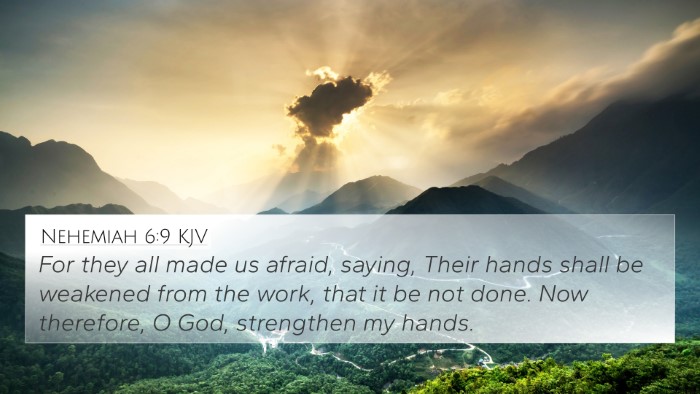 Nehemiah 6:9 (KJV) »
Nehemiah 6:9 (KJV) »
For they all made us afraid, saying, Their hands shall be weakened from the work, that it be not done. Now therefore, O God, strengthen my hands.
 Acts 16:20 (KJV) »
Acts 16:20 (KJV) »
And brought them to the magistrates, saying, These men, being Jews, do exceedingly trouble our city,
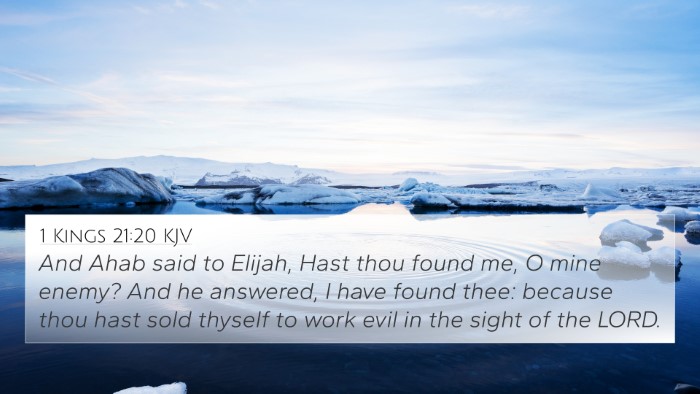 1 Kings 21:20 (KJV) »
1 Kings 21:20 (KJV) »
And Ahab said to Elijah, Hast thou found me, O mine enemy? And he answered, I have found thee: because thou hast sold thyself to work evil in the sight of the LORD.
 1 Kings 18:17 (KJV) »
1 Kings 18:17 (KJV) »
And it came to pass, when Ahab saw Elijah, that Ahab said unto him, Art thou he that troubleth Israel?
 Acts 28:22 (KJV) »
Acts 28:22 (KJV) »
But we desire to hear of thee what thou thinkest: for as concerning this sect, we know that every where it is spoken against.
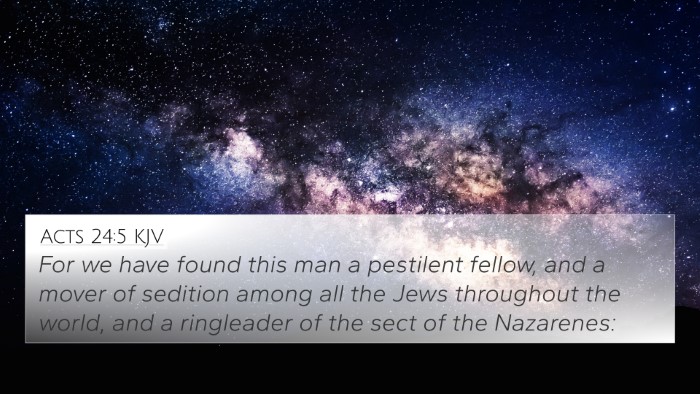 Acts 24:5 (KJV) »
Acts 24:5 (KJV) »
For we have found this man a pestilent fellow, and a mover of sedition among all the Jews throughout the world, and a ringleader of the sect of the Nazarenes:
 John 11:46 (KJV) »
John 11:46 (KJV) »
But some of them went their ways to the Pharisees, and told them what things Jesus had done.
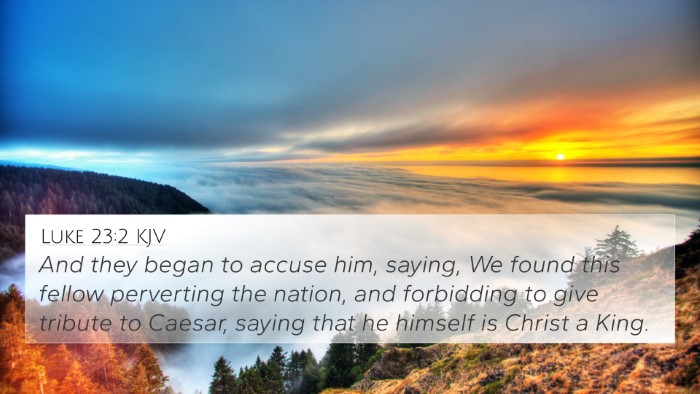 Luke 23:2 (KJV) »
Luke 23:2 (KJV) »
And they began to accuse him, saying, We found this fellow perverting the nation, and forbidding to give tribute to Caesar, saying that he himself is Christ a King.
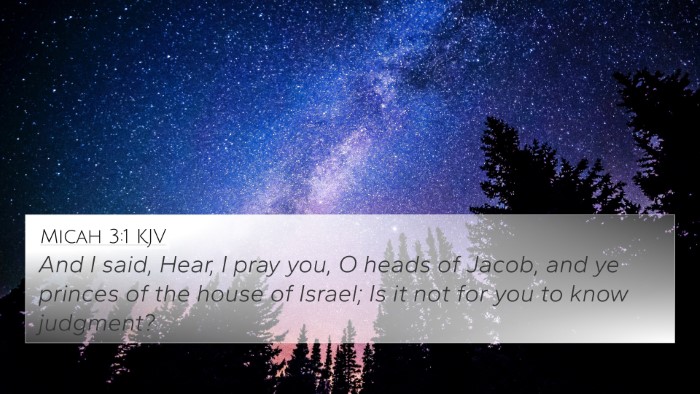 Micah 3:1 (KJV) »
Micah 3:1 (KJV) »
And I said, Hear, I pray you, O heads of Jacob, and ye princes of the house of Israel; Is it not for you to know judgment?
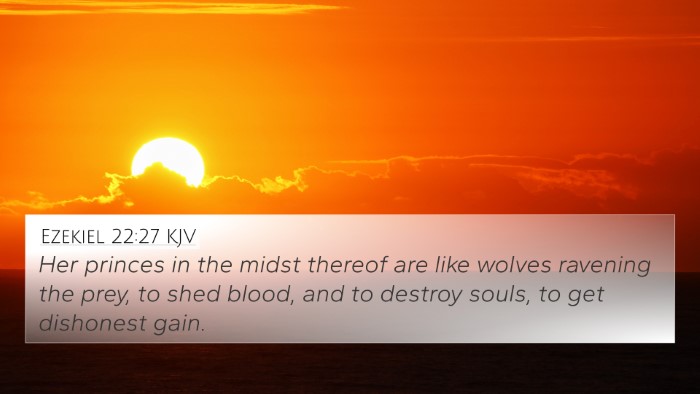 Ezekiel 22:27 (KJV) »
Ezekiel 22:27 (KJV) »
Her princes in the midst thereof are like wolves ravening the prey, to shed blood, and to destroy souls, to get dishonest gain.
 Jeremiah 36:12 (KJV) »
Jeremiah 36:12 (KJV) »
Then he went down into the king's house, into the scribe's chamber: and, lo, all the princes sat there, even Elishama the scribe, and Delaiah the son of Shemaiah, and Elnathan the son of Achbor, and Gemariah the son of Shaphan, and Zedekiah the son of Hananiah, and all the princes.
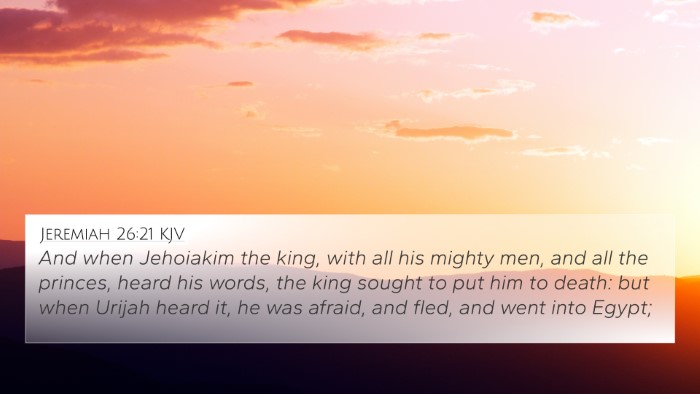 Jeremiah 26:21 (KJV) »
Jeremiah 26:21 (KJV) »
And when Jehoiakim the king, with all his mighty men, and all the princes, heard his words, the king sought to put him to death: but when Urijah heard it, he was afraid, and fled, and went into Egypt;
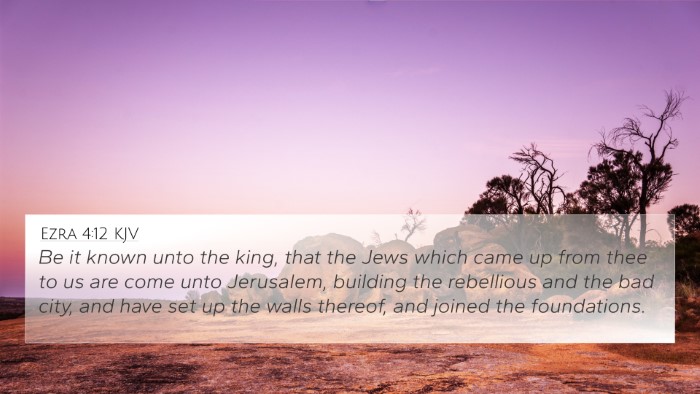 Ezra 4:12 (KJV) »
Ezra 4:12 (KJV) »
Be it known unto the king, that the Jews which came up from thee to us are come unto Jerusalem, building the rebellious and the bad city, and have set up the walls thereof, and joined the foundations.
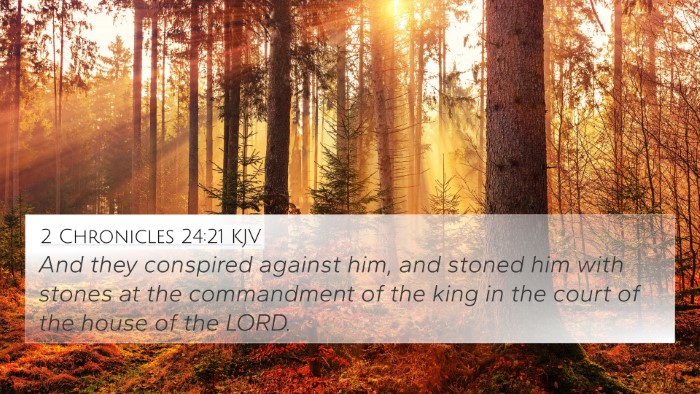 2 Chronicles 24:21 (KJV) »
2 Chronicles 24:21 (KJV) »
And they conspired against him, and stoned him with stones at the commandment of the king in the court of the house of the LORD.
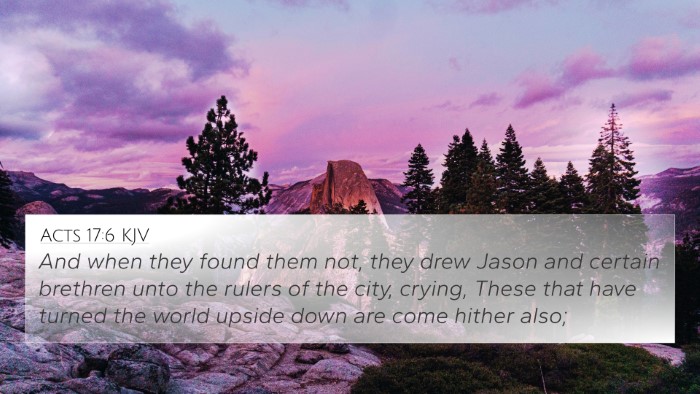 Acts 17:6 (KJV) »
Acts 17:6 (KJV) »
And when they found them not, they drew Jason and certain brethren unto the rulers of the city, crying, These that have turned the world upside down are come hither also;
